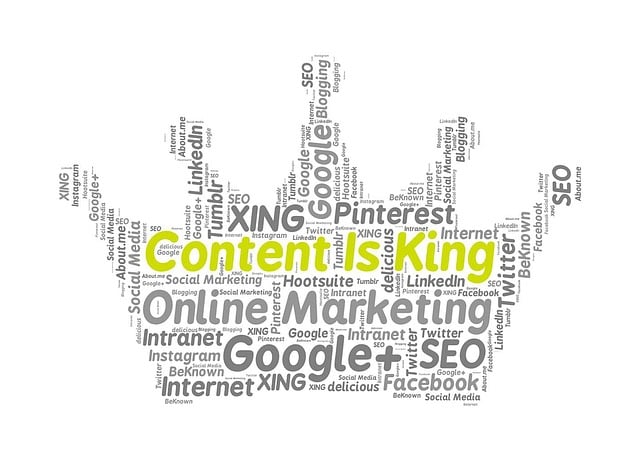Integrating AI-powered marketing strategies into vehicle repair processes significantly enhances profitability by optimizing operations through efficient diagnostics, precise cost estimates, and personalized customer interactions. AI algorithms analyze historical data and industry trends to streamline workflow management and automate marketing campaigns tailored to specific vehicle types or common issues. Predictive analytics anticipate maintenance needs, fostering proactive service, increasing customer loyalty, and maximizing revenue. Success is measured via KPIs like job throughput, labor costs, diagnostic accuracy, and customer satisfaction, with regular audits, retraining of AI models, and hybrid decision-making frameworks enhancing performance and profitability.
“In today’s competitive automotive landscape, harnessing the potential of AI-powered marketing strategies is a game-changer for vehicle repair centers. This article explores how artificial intelligence can revolutionize profitability by streamlining operations and enhancing customer engagement. We’ll delve into three key areas: understanding the impact on repair profitability, implementing effective AI-driven marketing tactics, and measuring success to optimize AI integration. By embracing these strategies, repair centers can stay ahead in a rapidly evolving market.”
- Understanding the Impact of AI on Vehicle Repair Profitability
- Implementing AI-Powered Marketing Strategies for Repair Centers
- Measuring Success and Optimizing AI Integration in Automotive Repair
Understanding the Impact of AI on Vehicle Repair Profitability

The integration of Artificial Intelligence (AI) into vehicle repair processes offers a transformative opportunity to boost profitability. By leveraging AI-powered marketing strategies for vehicle repair centers, businesses can optimize their operations and gain significant advantages in a competitive market. These strategies enable efficient diagnostics, precise cost estimations, and personalized customer interactions, enhancing the overall repair experience.
AI algorithms can analyze vast amounts of data from past repairs, vehicle models, and industry trends to provide insights that streamline workflow management. Automated marketing campaigns, tailored to specific vehicle types or common issues, can attract and retain customers. Additionally, AI-driven predictive analytics anticipate maintenance needs, fostering proactive service, increasing customer loyalty, and ultimately maximizing revenue for repair centers.
Implementing AI-Powered Marketing Strategies for Repair Centers

Implementing AI-Powered Marketing Strategies for Repair Centers can significantly boost profitability. By leveraging machine learning algorithms, repair centers can gain valuable insights into customer behavior and preferences, enabling them to tailor their services accordingly. For instance, AI can analyze historical data to identify patterns in vehicle models needing repairs, parts replacement trends, and common service requests. This knowledge allows for proactive marketing campaigns targeted at specific vehicle types and owners, increasing the chances of business conversion.
Moreover, natural language processing (NLP) tools integrated into chatbots or virtual assistants can handle customer inquiries effectively, providing quick quotes and scheduling appointments 24/7. Such AI-driven interactions not only enhance customer experience but also reduce staffing costs. Additionally, predictive analytics can forecast market demands, helping repair centers optimize inventory management and resource allocation, thereby minimizing waste and maximizing profits.
Measuring Success and Optimizing AI Integration in Automotive Repair

Measuring success and optimizing AI integration in automotive repair is a dynamic process that requires continuous evaluation and refinement. Key performance indicators (KPIs) such as increased job throughput, reduced labor costs, improved accuracy in diagnostics, and higher customer satisfaction can act as benchmarks for gauging AI’s impact. By tracking these metrics, repair centers can identify areas where AI-powered marketing strategies like predictive maintenance, automated inventory management, and intelligent scheduling are delivering tangible benefits.
To maximize the optimization, regular audits of AI models should be conducted to ensure they remain accurate and aligned with evolving vehicle technologies. This involves retraining models based on new data sets, updating algorithms to account for emerging repair trends, and integrating feedback from technicians to refine AI outputs. Additionally, fostering open communication between human experts and AI systems through hybrid decision-making frameworks can lead to more robust outcomes, ultimately enhancing the overall profitability of vehicle repair operations.
AI offers a game-changing opportunity for vehicle repair businesses to boost profitability. By implementing AI-powered marketing strategies, repair centers can streamline operations, attract more customers, and optimize pricing. These advanced solutions enable efficient parts inventory management, accurate diagnostic tools, and personalized customer engagement, ultimately leading to increased revenue and enhanced service quality. Embracing AI integration ensures automotive repair shops stay competitive in today’s digital landscape.
